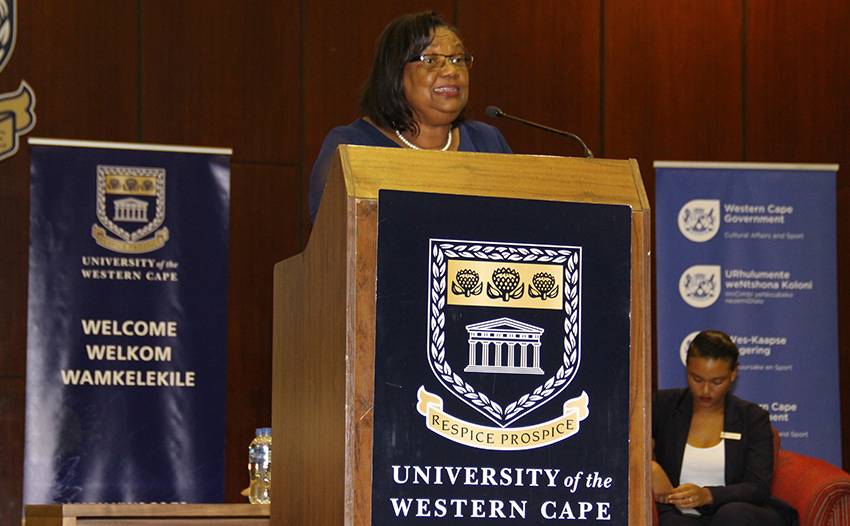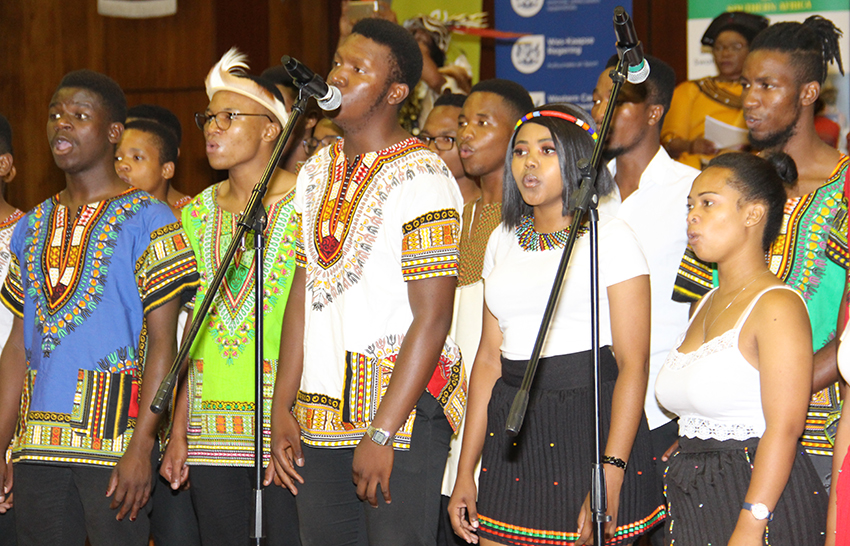
News
DCAS and stakeholders highlight importance of mother languages
The importance of indigenous languages was brought into focus this past weekend as the Department of Cultural Affairs and Sport (DCAS) partnered with several other organisations to celebrate International Mother Language Day.
International Mother Language Day was founded by the United Nations Educational, Scientific and Cultural Organisation (UNESCO) and has been observed annually all over the world since 2000. Language diversity is threatened around the globe, with more and more languages disappearing each year. UNESCO hopes to assist in preserving these languages in an effort to foster tolerance and respect amongst people of different cultures.
The DCAS celebrations kicked off on Thursday 20 February, with the hosting of outreach story reading sessions in Khayelitsha.
On Friday a celebration was hosted at the main hall of the University of the Western Cape, with a variety of speakers and presentations; including Jane Moleleki, Director of Arts, Culture and Languages at DCAS.
“The purpose of this engagement today is to pose that fundamental question: Why is it so important that we do not allow indigenous languages, to wither away?,” Ms Moleleki said during her speech.
“The Department of Cultural Affairs and Sport is assigned with the responsibility to elevate the status and advancement as well as the use of those indigenous languages, of historically diminished status used by the people of the Western Cape. Central to this advancement, the department strongly shares the view that language and identity are inseparable.
"For indigenous peoples, languages are not only a means of finding true identify but also their origin or membership in a community. It also carries the ethical values of their ancestors – the indigenous knowledge systems that make them one with the land and are crucial to their survival and to the hopes and aspirations of their youth.”
The theme of Friday’s celebration was “Indigenous languages matter for development, peacebuilding and reconciliation”.
An interactive workshop was hosted on Saturday at the Iziko South African Museum in the Company’s Gardens in Cape Town. The organisations involved in the events were Iziko Museums of South Africa, the University of the Western Cape, the Pan South African Language Board, the Western Cape Language Committee, the SupuSupu Khoi Language Project and the Swahili Language Board.
According to UNESCO, one of our world’s languages disappears every two weeks. The UN states that at least 43% of the world’s estimated 6 000 languages are endangered and that 40% of all people do not have access to an education in a language they speak or understand.
DCAS works to ensure that the Western Cape’s languages have equal standing in government, and promotes the use of previously marginalised languages and mother tongues amongst the people of the Western Cape.
Dr Tania Colyn
Head of Communication Service
Department of Cultural Affairs and Sport
Tel: 021 483 9877 / 076 093 4913
E-mail: Tania.Colyn@westerncape.gov.za





